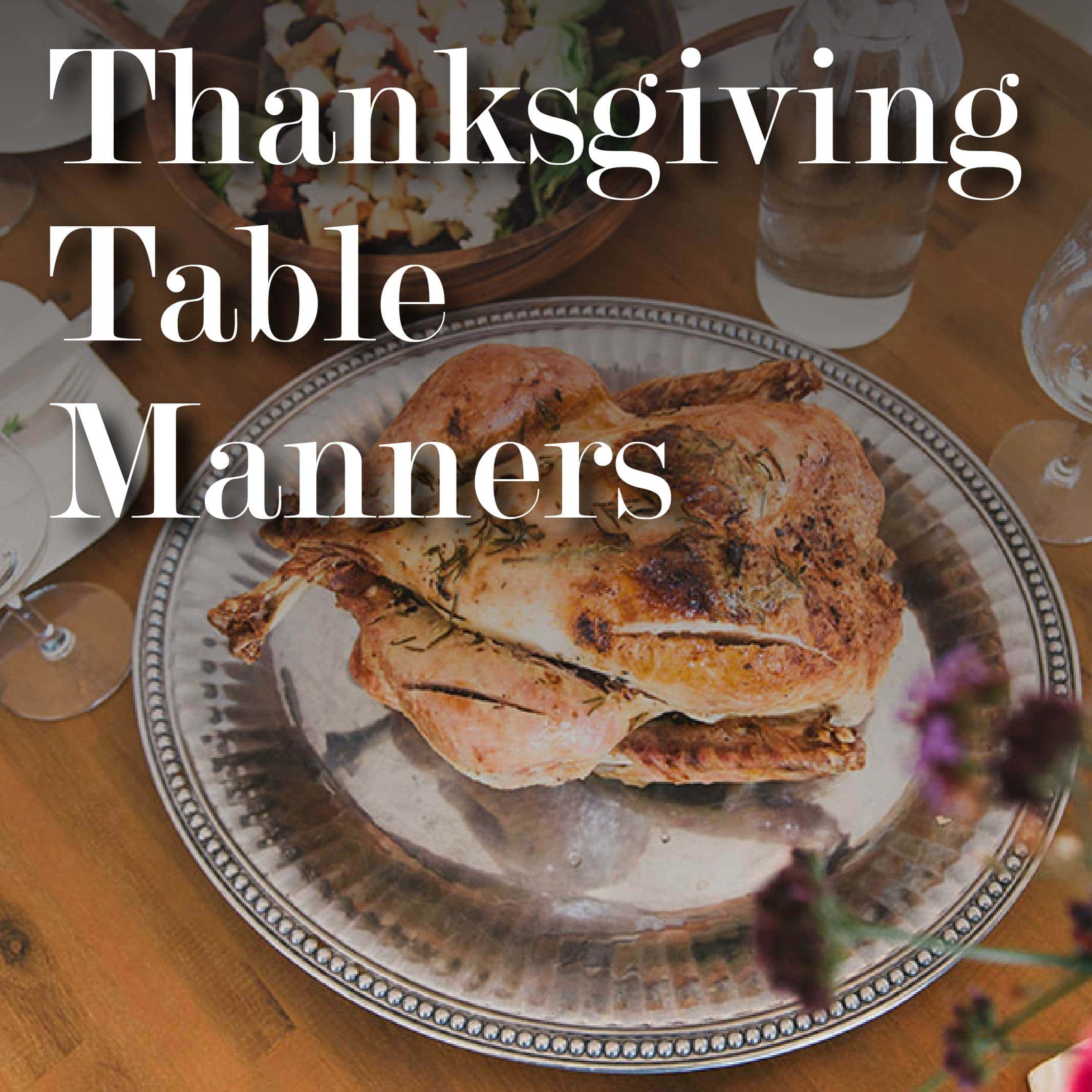Autumn is a thrilling season. The air is crisp with change, and the glory of fall’s kaleidoscope colors adds to our eager anticipation of the holidays.
As you and I come together with loved ones at the family Thanksgiving table, it’s appropriate that we also look at Jesus’ invitation to the ultimate Table of thanksgiving—His. The Lord’s summons to His Table, “Do this in remembrance of Me,” isn’t that we become morbid over it. I don’t say that to minimize the suffering our Savior went through. Every year at Good Friday, we go to great lengths to focus on the price tag that He paid for us, and I think that’s appropriate for that season.
But when we come to the Lord’s Table and study the Scripture, we see that He wants us to remember not only that His body was broken and His blood spilled, but that these things took place so that His provision might flow to us. That we remember it was “for the joy that was set before Him, He endured the cross” (Hebrews 12:2). And that we celebrate and give thanks for that. In fact, the word “Eucharist,” which is often used for the Lord’s Table, is a Greek verb for “thanks” or “thanksgiving.”
This November, as your family prepares to enjoy the great American tradition of Thanksgiving, I’d like you to see how the same principles that apply to that celebration also apply to our partaking as the Lord’s Family of His Table.
At Our Thanksgiving Table
Come home and embrace the family. For many people, there’s at least one family member we aren’t looking forward to seeing at Thanksgiving. But the challenge is that we are called to embody the love of God and embrace them. And if you’re the one asked to bless the table, don’t pray an evangelistic sermon at those who don’t know the Lord. Give thanks and pray about how much God loves every person there.
Regard your host with proper praise. Anyone willing to host a group in their home for Thanksgiving deserves honor—if not a medal—even if the food they serve isn’t as good as yours. Go with gratitude, and regard your host with proper praise.
Enjoy the feast for all it’s worth. Folks, this is not a day for dieting. Go for it! Over the years, I’ve found a tremendous joy in fasting a day or two earlier in the week to prepare my heart before the Lord. (Be sure to start eating again the day before Thanksgiving, so your system is ready to enjoy the feast!)
Unusual prayer is fitting here. This is a day when we ought to give more dimension to our prayer. It’s not that brief prayers are insincere, but at the Thanksgiving table, it’s appropriate to make time for gratitude—for the family, for the gift of life that has sustained us to this point. And thank the Lord for our nation. Whatever may be America’s failings, God has been merciful to us.
Wash your hands before you eat. That may seem unnecessary to say, but it’s one of the keys laid out by the apostle Paul as he wrote about manners for the ultimate thanksgiving Table.
Now let’s look at these same five principles and the thanksgiving manners God’s Word says are to govern our approach to the Lord’s Table. Take a moment and open your Bible to 1 Corinthians 11:17-34, and study the text along with me.
At the Lord’s Table
Come home and embrace the family.
I do not praise you, since you come together not for the better but for the worse. – 1 Corinthians 11:17
In 1 Corinthians 11:17-22, the apostle Paul issues one of the sharpest rebukes in all of the New Testament. However sincere the Corinthians were, they very much miscalculated what the Lord’s Supper was about. It appears from the text that their partaking was more of a meal to celebrate what the Lord had done. But because of divisions in the church, people came together in cliques, and the poor were left out with nothing to eat. So Paul sets forth these thanksgiving Table manners (v. 23-34). He instructs the church that since the Lord’s Table is the massive statement of God’s love and forgiveness toward us, how can anyone come to it without demonstrating love and forgiveness toward others?
As you come to the Table, open up to the power of its reality to penetrate your heart and life; to melt down stress or unforgiveness that has mounted up. Reach to others and embrace them with the love of God, especially where there has been neglect.
Regard your Host with proper praise.
I received [this Table] from the Lord… – 1 Corinthians 11:23
We’re not told when or how, but Paul had an encounter with Jesus. While not necessarily a physical manifestation, it may have been that Jesus gave Paul instruction as He had done in the upper room. What Paul is emphasizing, however, is not the revelation that came into his heart but that the Host of this Meal is Jesus. The Table isn’t something the church does; the Table is something Jesus calls us to do. He not only serves and directs it, He paid the price for the meal, and He is the One who issues the invitation to everybody.
That brings us to a fundamental issue of how it has entered the Church’s habit and thought that it is somehow a church’s privilege to determine who gets to come to the Table and who doesn’t. That isn’t true. It is the privilege of the Host, and His invitation is that whosoever will may come.
Some churches prohibit a person who has had a failure in their life from coming to the Table as a means of discipline. But that indicates unawareness for two reasons: First, it’s not our Table to say who gets to come; it’s the Lord’s. Second, there is power in this Table, and when people are prohibited from coming, that limits their ability to draw on the Resource that will help them beyond whatever problem caused the failure. This also means that not only are people who are not members of that particular church welcome to come, but also those who haven’t received Christ yet.
Certainly people have raised their eyebrows when they’ve heard me say that. They ask, “You mean, you invite unbelievers to the Table?” Absolutely! I invite them to come and let Jesus show Himself to them. I invite them to say, “Jesus, if You’re real, I want to taste and see if the Lord is good.” The glory of the Lord doesn’t need to be hemmed in by Church tradition; it needs to be released so Jesus can show Himself in splendor. When people are prohibited from coming to the Table, it’s like saying to a person suffering from malnutrition, “You can’t have any food till you get over your malnutrition.” The Lord’s Table not only testifies to salvation, but also nourishes with strength.
Enjoy the feast for all its worth.
For as often as you eat this bread and drink this cup, you proclaim the Lord’s death till He comes. – 1 Corinthians 11:26
At the Table, we are declaring the accomplishment of Calvary. When Jesus says, “This is My body broken for you,” He is saying, “I was broken so you can be made whole. I suffered so you can be healed.”
Some believe that verses 29-30, where it talks about eating and drinking “in an unworthy manner” as the “reason many are weak and sick…and many sleep” means that God will punish them with sickness or death because they came to the Table “unworthily.” But it has nothing to do with that. It’s talking about failing to discern the resources available at the Table, failing to participate in faith to receive the healing and strength the Lord has for us.
The regular celebration of the Table is that we come with thanksgiving to receive the strength, grace, and power of God. At this Table, there is wholeness available for every part of our life. So come and partake of the feast; enjoy it for all it’s worth.
Unusual prayers are fitting here.
For he who eats and drinks in an unworthy manner eats and drinks judgment to himself, not discerning the Lord’s body. – 1 Corinthians 11:29
Verses 27 and 29 are heavy stuff. What they are saying is, when you come to the Table, attribute to it the full weight (worth) and substance it deserves. “Worthy” has to do with the value you ascribe to what you are doing, not that you are personally worthy. In fact, let’s settle it once and for all: If the only people who can come to the Table are those who are worthy, that means none of us can come. To partake of this cup “unworthily” means to fail to ascribe to it the full weight and worth of what is available to me as I come.
So unusual prayer is fitting. I ascribe the full weight to the Table by inviting the Lord to flow His wholeness into any place in my life where I am broken. And by partaking at this Table, I am not only being forgiven, I am also being commissioned as a forgiver.
Wash your hands before you eat.
But let a man examine himself, and so let him eat of the bread and drink of the cup…For if we would judge ourselves, we would not be judged. – 1 Corinthians 11:28, 31
These words are saying, “Don’t come to the Table without taking a look at what may be needed of God’s cleansing in your own life.” Things intrude on all of us; some recent, some old. Things that are recent are easier to deal with than things that get dried-up and stuck in our life. You can come to the Lord’s Table and open the faucet of grace—just stand there and receive the spray, and good stuff will happen. But the old stuck things will not be released until we come to the Table and get up close and personal with the power-flow of what Jesus has made available.
Coming to the Table isn’t a ritual; it’s a reality. We’re not talking about Jesus in the past or the future; He’s present to serve us now through the hands of people who are servants of His and who, in His Name, say, “You come.” The Bible says that in doing so, we show the Lord’s death till He comes.
Finally, dear one, there are two other Thanksgiving Table Manners:
Do all you can to share the day. Every time we partake, we proclaim the Lord’s death. We share the day of salvation at the Cross, and today is the acceptable day of salvation.
Don’t miss dinner, even if you’re late. Last year, a couple of our kids had to go to another dinner, and they arrived late. But it didn’t make any difference because we were all together. There are people who haven’t come to “Dinner” yet, but it’s not too late. Until Jesus comes, the invitation is still open. So you come!
Copyright © 2007, 2010 by Jack W. Hayford, Jack Hayford Ministries
Our gift of this teaching article by Pastor Jack Hayford is made possible by your gracious support of the ministry. Partner with us online or call toll-free 1-800-776-8180 to donate (within the U.S.).



